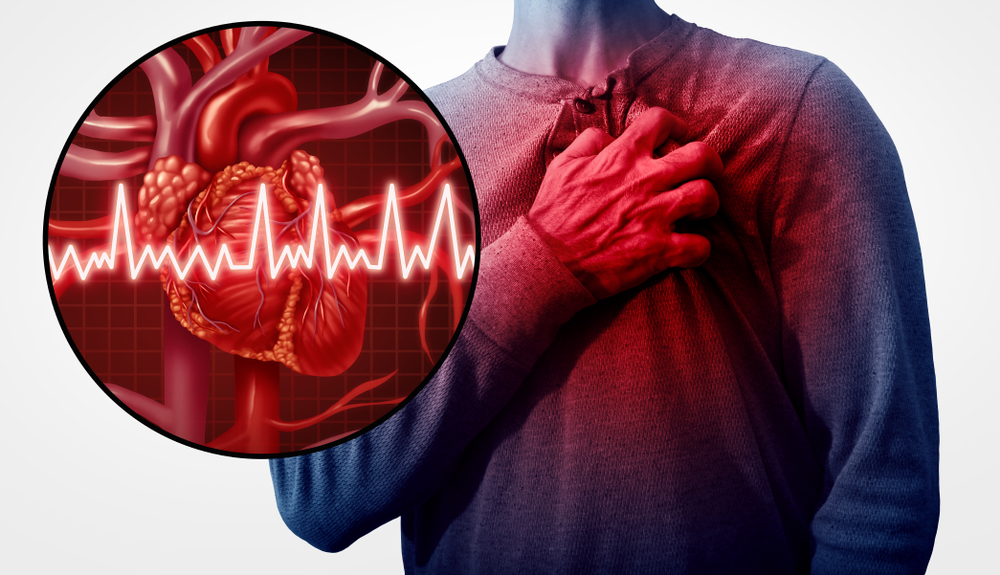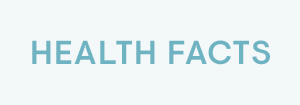
Overview
Angina (angina pectoris) describes the pain, ache or discomfort and all other associated symptoms when blood flow to heart muscle cells is insufficient to meet its energy needs.
The classic description of angina is a crushing pain, heaviness, or pressure that radiates across the chest, sometimes down the arm, the neck, jaw or teeth, or the back. It is also associated with shortness of breath, vomiting, nausea, sweating, and weakness.
Stable angina is mostly brought on by exercising or strenuous activities and can subside with rest. However, unstable angina is a warning sign of heart or other coronary disease and may signal a heart attack.
Key Facts
- Angina is caused by reduced or disrupted blood flow to the heart
- It is a symptom of coronary artery and other heart diseases.
- Its grouped into two major types; stable and unstable angina
- The most common symptom of angina is tightness, heaviness, or pressure in the chest area.
- Sometimes, it may cause burning, aching or numbness, fullness, or squeezing sensation.
- It may masquerade as shortness of breath or indigestion. Older adults and women are more likely to experience this kind of angina.
- Angina can cause other symptoms such as sweating or a general foreboding sense that something is wrong.
Symptoms
Angina is majorly characterised by discomfort or pain in the chest. The pain may feel like;
- Burning
- Pressure
- Fullness
- Squeezing
The pain may also radiate to the arms, neck, jaw, shoulder, or back. Other symptoms of angina may include:
- Shortness of breath
- Dizziness
- Fatigue
- Nausea
- Sweating
The intensity and duration of angina may vary in affected persons. Suppose it does not lessen after getting some rest or develop new symptoms. In that case, it will need to be evaluated by a healthcare provider who can determine if it’s stable or unstable and administer treatment.
Diagnosis
Unstable angina is a precursor to a heart attack; you should call emergency medical services if it occurs.
If you are experiencing heart pain, you should, without delay, report to your doctor or healthcare provider. They will, after performing a physical examination, order either one or more of these tests
- Chest X-rays.
- Complete blood count (CBC).
- Electrocardiogram (EKG).
- Cardiac stress test.
- Echocardiogram.
- Coronary angiography and cardiac catheterization.
- Coronary computed tomography angiogram (CTA).
Causes
Angina results from ischemia. Ischemia happens when your heart does not get sufficient blood it needs to function. This can trigger heart muscle cramps and other abnormalities in the organ.
It usually happens when you engage in activities that require the heart to pump extra oxygen, such as exercising or eating. Ischemia can also result from extreme stress or cold temperatures; as your body tries to cope, your heart may become deprived of oxygen.
Ischemia from other heart conditions like coronary artery disease (CAD),does not always produce symptoms. Sometimes angina symptoms do not occur until a person is to the point of having a devastating cardiac problem, such as a heart attack, heart failure, or heart rhythm abnormality. This condition is called “silent ischemia.”
Angina can also be caused by heart conditions such as coronary microvascular disease (MVD) and coronary spasms.
Prevention
Simple lifestyle modifications can prevent angina. You can take the following steps to live a healthier life;
- Engage in exercises or other physical activities for at least two and half hours every week.
- Eat healthily
- Manage stress and pressure in healthy ways like yoga, meditation, or speaking to a mental health specialist.
- Maintain a healthy weight or lose weight if needed
- Properly manage high blood pressure and diabetes if you already have the conditions.
- Quit smoking, and if you don’t, don’t start.
Treatment
Your healthcare provider will treat angina after preliminary tests have been carried out.
In extreme angina cases, you may require Coronary angioplasty and stenting (percutaneous coronary intervention or PCI) or coronary artery bypass grafting (CABG) surgery. These surgeries are carried out to improve blood flow to the heart.
However, some patients may not require either of these surgeries as medications will be enough to reduce symptoms. The conclusive treatment option will be based on your symptoms and the findings from tests conducted.
In some cases, affected persons still experience angina even after treatment. Your doctor may prescribe a medication to quickly open blood vessels (vasodilators) when you experience pain. Nitroglycerin is one of the most often used medications to treat common angina.
Other medications for angina include:
- Cholesterol-lowering drugs.
- Anti-clotting drugs (antiplatelets).
- High blood pressure medications.
Conclusion
Angina describes sharp pain, pressure, burning or fullness of the chest. It is either caused by strenuous activities ( stable angina) or a sudden pain in the chest area ( unstable angina) which is usually a warning sign of a heart attack
Treatments can relieve angina, if you keep having chest pain, speak to your healthcare provider to begin investigation and prescribe treatment.
MOST COMMON






